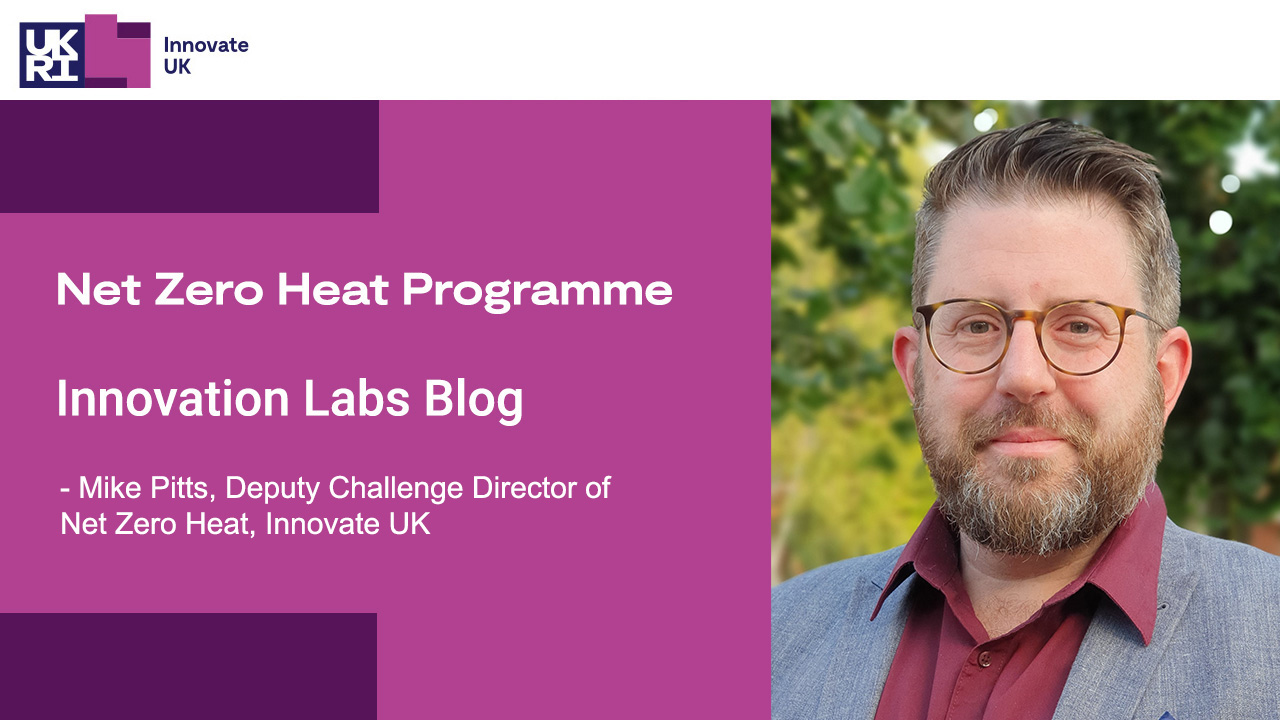Net Zero Heat programme - Innovation Labs Blog

What happens when you get a group of experts in a room who, between them, understand all aspects of the process to retrofit buildings to be net zero? Brand-new insights and ideas?
What if we take them away for a week and stimulate them to think even deeper about what is needed to bring down the cost of retrofit and enable it to scale? Whole new collaborative project ideas to drive faster change?
Well, that’s the aim of Innovate UK’s Net Zero Heat Innovation Lab which will run this September. We know the cost of upgrading buildings to net zero needs to fall, and that some of that can come from taking a whole system view of retrofit from design, through capital kit, installation and assessment. To look at that challenge properly we knew we needed to get a mix of experts and give them to time and resources to rethink how upgrades could be delivered. The Innovation Lab will run for a week and the best ideas that result will be funded by Innovate UK, with over £8m available.
To run the Innovation Lab we sought to recruit applicants who had expertise that was relevant, from a supportive organisation, and could evidence they had the skills and mindset to develop new R&D ideas with others and were excited by the opportunity. This last part is critical. If attendees turned up wanting to push a pre-conceived idea, genuine collaboration and new thinking would suffer.
Through the week the 40 selected experts will be challenged to rethink the overall system of retrofit to make it faster, lower cost and easier for residents. A key aim is to move from what is essentially a bespoke artisanal approach today to something that is more industrial in scale. The Ikea kitchen versus the hand-crafted kitchen equivalent.
Experts will be on hand to facilitate, mentor and prompt the participants to think about aspects such as system design and how to develop solutions that are inclusive and work for the most vulnerable in society. We need solutions that work for the over 7 million homes on pre-payment meters. We need outcomes that improve health for occupants. We need controls that are easy to understand and use.
Of the participants selected, over half are SMEs with a wide range of expertise. Large company representatives include Octopus, Tata Steel, Pilkington’s and EDF. Experience in delivering large retrofit projects comes from the likes of Energiesprong and some local authorities, and a number of academics and research technology organisations (RTOs) provide wider expertise. The consortia that form from the participants can draw on some outside experts to build the right project proposals through the week. Those still interested in being part of resulting projects can register their interest on our directory which participants in the Lab can consult to fill gaps.
We expect that using the process we will get deeper and broader consortia forming than would come together spontaneously through a normal grant competition. That investment in time will hopefully provide deeper thought through proposals that can go further, faster. To stay on track for 6th Carbon Budget pathways on heat, we have to be ready to scale building upgrades in a few years’ time and we see this programme as key in kickstarting that transition.
I (Mike Pitts), will be reporting each day from the Innovation Lab throughout the week it is happening, sharing the exciting themes discussed and highlights of working in this more in-depth way. To follow, stay tuned to our social media channels:
X / Twitter: @pittso
Threads: @mikepittso
LinkedIn: https://www.linkedin.com/in/mikepitts/

